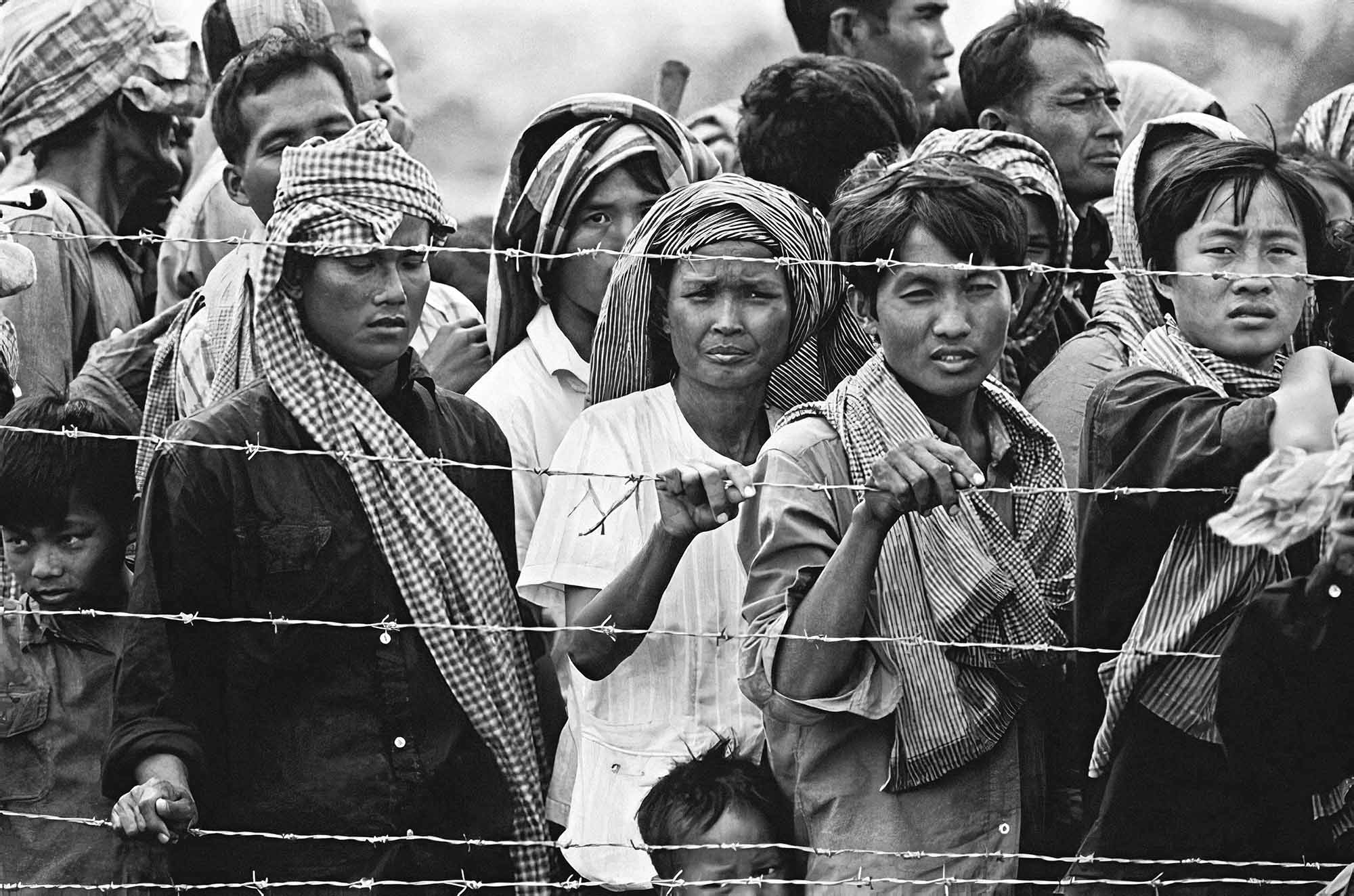Cambodia
As a result of the Khmer Rouge regime's brutal actions, the country mentioned above came to be known as “Killing Fields”, and at least 1.7 million people lost their lives.
Cambodian Genocide
The Khmer Rouge regime, headed by Pol Pot (Saloth Sar) who ruled Cambodia between 1975 and 1979, had resorted to various methods such as mass execution, deportation, forced marriage and reproduction, prohibition of religious rites and traditions, and forced labour to eliminate or suppress any elements that they thought would prevent them from achieving their goals.

- The Khmer Rouge regime, headed by Pol Pot (Saloth Sar) who ruled Cambodia between 1975 and 1979, had resorted to various methods such as mass execution, deportation, forced marriage and reproduction, prohibition of religious rites and traditions, and forced labour to eliminate or suppress any elements that they thought would prevent them from achieving their goals.
- As a result of the Khmer Rouge regime's brutal actions, the country mentioned above came to be known as “Killing Fields”, and at least 1.7 million people lost their lives.
- In 1979, the Khmer Rouge regime collapsed, the administrative staff of the regime disbanded, Pol Pot died under house arrest in 1998. Some of the staff of the Khmer Rouge regime changed sides over time.
- The trials that took place after the fall of the Khmer Rouge regime were legally inadequate. The Cambodian government reached an agreement with the United Nations to further investigate these painful events and prosecute the perpetrators at international standards.
- In this framework, an UN-sponsored independent Cambodian court was established, consisting of Cambodian and foreign judges, prosecutors and lawyers. The official name of this court is “Extraordinary Chambers in the Courts of Cambodia for the Prosecution of Crimes Committed during the Period of Democratic Kampuchea”, and it started to work in 2007.
- Extraordinary Chambers are classified as “hybrid”, “internationalized” or “mixed” courts in law. Although there are other courts formed in a similar way to the ones mentioned above, Cambodia’s Extraordinary Chambers are considered unique for now due to their structure and functioning.
- Cambodia’s Extraordinary Chambers reviewed numerous documents and former statements of the Khmer Rouge regime, conducted extensive investigations and took the testimonies of many people during the prosecution.
- On the other hand, the jurisdiction of the Extraordinary Chambers was limited to prosecute only the senior leadership of the Khmer Rouge regime (Democratic Kampuchea) and those most responsible for the crimes committed by the regime between April 1975 and January 1979.
- Since Pol Pot, the number one perpetrator, died, the court focused on other suspects, and within this framework, an investigation was launched against nine individuals.
- Extraordinary Chambers stated the following in its press release regarding the decision taken on 16 November 2018 for the case numbered 002/02, which was the last trial:
- ~~“Today, the Trial Chamber of the Extraordinary Chambers in the Courts of Cambodia (ECCC) convicted former senior Khmer Rouge leaders NUON Chea and KHIEU Samphan of genocide, crimes against humanity and grave breaches of the Geneva Conventions of 1949. The crimes were committed at various locations throughout Cambodia during the Democratic Kampuchea period from 17 April 1975 to 6 January 1979.”
- The Chamber convicted Nuon Chea and Khieu Samphan of committing genocide against the “ethnic, national and racial” Vietnamese group, while Nuon Chea alone was convicted for genocide against the “ethnic and religious” group of Cham Muslims. The court stated that the aforementioned individuals were part of a “joint criminal enterprise”.
- In this context, it was found that they were also involved in other crimes such as enslavement; forcing to do heavy work without adequate food and water; deportation; imprisonment; torture; persecution on political, religious and racial grounds; forced marriage and rape. Both of the accused were sentenced to life imprisonment.
- The Chamber found that between 1975 and 1976, there was a nationwide policy to expel Vietnamese living in Cambodia, that Vietnamese civilians were killed on a massive scale in some cases, and hundreds of Vietnamese civilians and soldiers were killed at S-21 Security Centre after being tortured and subjected to inhumane conditions.
- The Chamber also confirmed that the religious and cultural practices of Cham Muslims were banned throughout the country; mosques were dismantled, and the copies of Holy Qur’an were burned; Cham people were forced to eat pork and prevented from worshipping and speaking their native language, and that they were arrested and killed on a massive scale at the Wat Au Trakuon and Trea Village Security Centres.
go top
